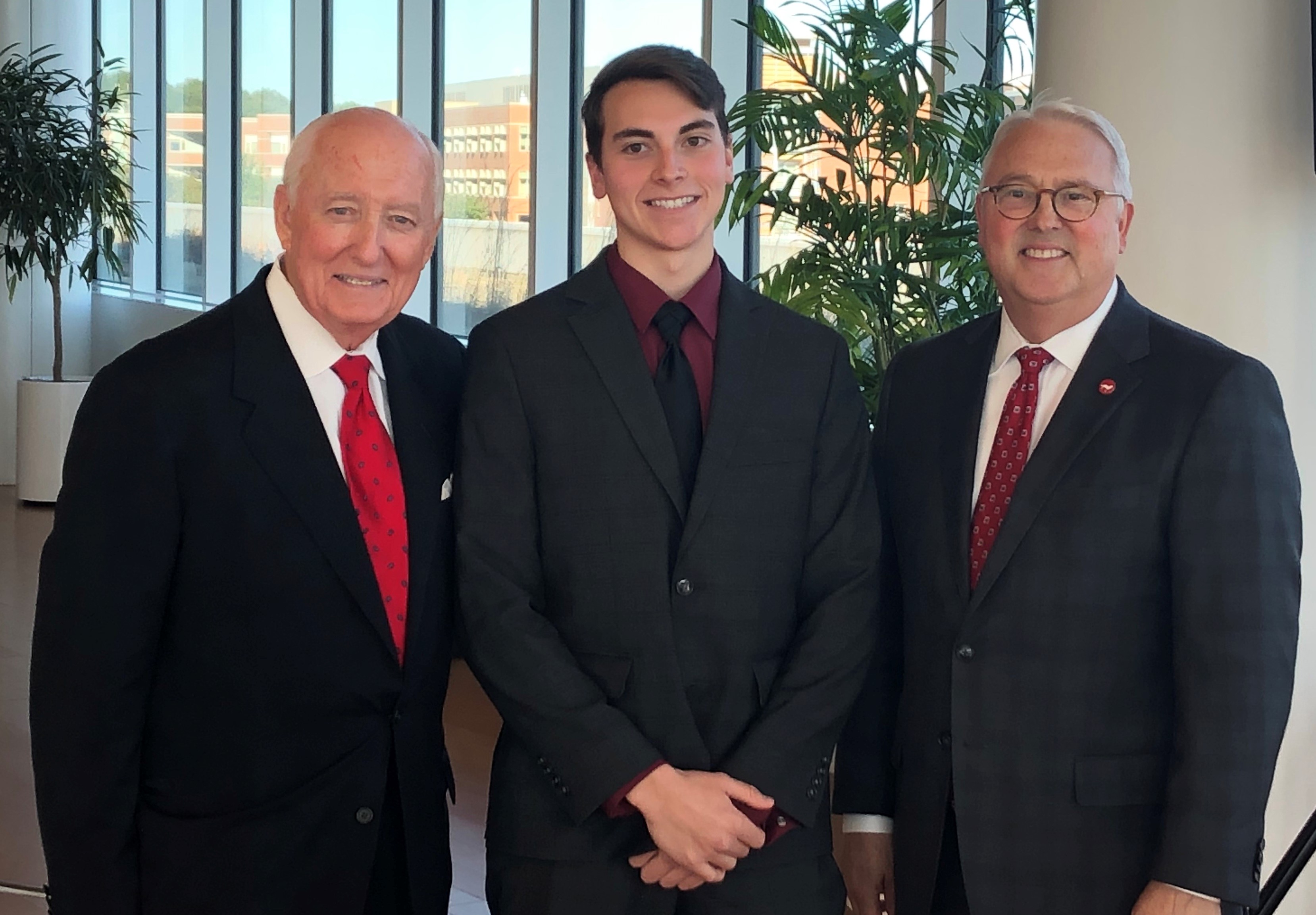North Carolina GSK Foundation
410 Blackwell Street
Durham
North Carolina 27701
©2022 NCGSK Foundation, All rights Reserved.
Privacy Policy
Terms and Conditions

Celebrating the North Carolina State University’s Community College Collaboration-C3 program. Bob Ingram, Chairman of the NC GlaxoSmithKline Foundation Board of Directors, Ethan Cole, NC State student & C3 program participant, & NC State University Chancellor Randy Woodson announce the $1,064,000 commitment over three years supporting the C3 program!
As we embark on developing a new strategic plan, the North Carolina GSK Foundation has closed our online grant application portal beginning December 1, 2025. Grant inquiries submitted in November 2025 will be evaluated and a decision made by the end of March 2026, including if a 2nd stage application if required. Thank you for your continued interest in our work and mission.
The Foundation’s new strategy will be announced in mid-2026. An update will be posted by May.
The North Carolina GSK Foundation has provided Traditional grants of $25,000 and above to organizations working to help meet the educational needs of today’s society and future generations.
The Foundation’s new primary focus will be announced on or before July 1, 2026.
The Foundation makes grants only to nonprofit, charitable organizations and institutions exempt under Section 501(c)(3) of the Internal Revenue Code; individuals may not apply.
Before the Foundation releases funds to an organization, the organization must review and approve a written agreement forwarded by the Board. Once the funds are released, successful applicants must submit written progress reports on an interim and final basis as specified in each grant agreement. Organizations that have received a previous grant from the Foundation must first meet all reporting requirements for an additional application to be considered.
The Foundation does not provide critiques of unsuccessful applications.
A Traditional grant inquiry must be submitted before moving to a full application. The Traditional grant inquiry will be reviewed and if the submitted inquiry falls within the Traditional grant guidelines, a second stage application will be made available via the application software. The second stage application must be submitted for review by the board of directors. Completing a second stage Traditional application does not guarantee grant approval.